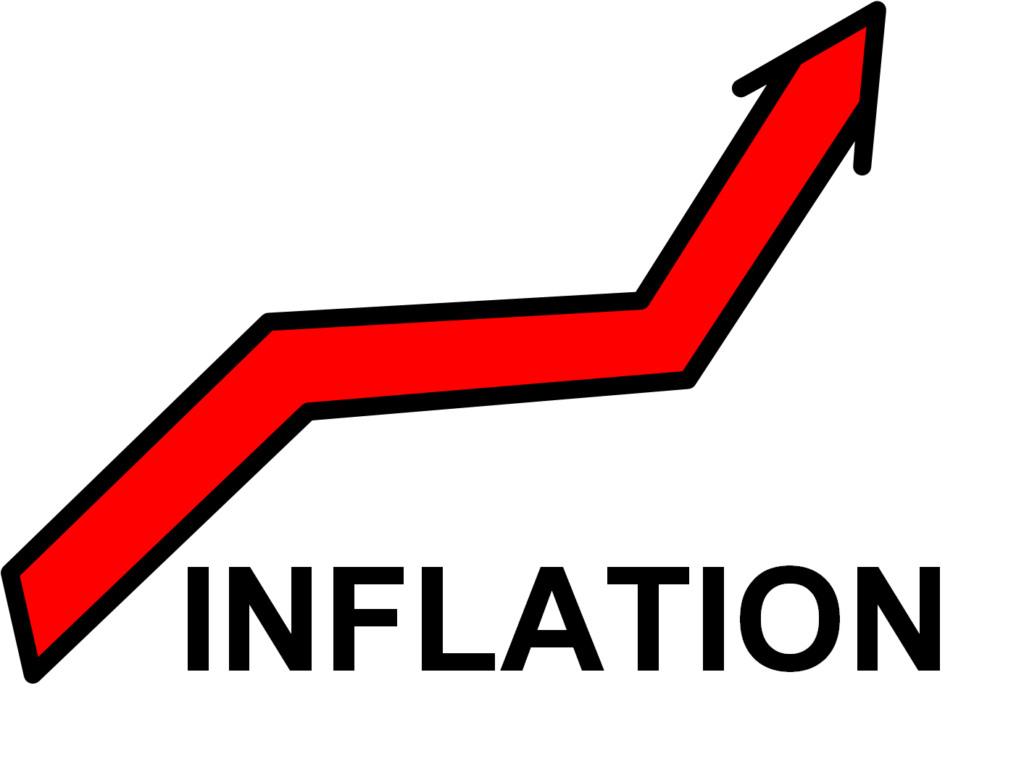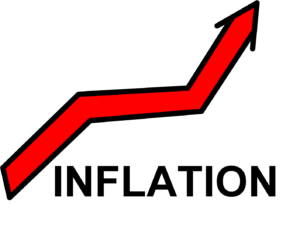
Estate Planning for Hyper Inflation
Hyper Inflation
Planning for inflation is challenging. Inflation is a tricky monster. It creates the illusion of an increase in value. When prices go up, things are worth more. Right? Wrong! With inflation, prices go up, but value remains the same. In reality, inflationary price increases mean the currency is worth less. Inflation means that money is devalued. The intrinsic value of what money buys does not change with inflation. The buying power of the money changes.
So, although the house that my parents purchased in the 60’s for $20,000 now sells for more than $400,000, the value of the house has not changed. It costs more because today’s dollar purchases much less than a dollar did in the 60’s.
Identifying the cause of inflation is not that difficult. Money is a commodity. If the supply of a commodity increases, the price will go down. Every time. It’s elementary economics. How does the supply of money go up? Most of the time inflation happens simply because the politicians or their surrogates print money. Politicians sometimes claim that because they are so clever such economic rules don’t apply to them. Such claims betray either a fundamental unawareness of how the world actually works, or deep dishonesty.
Such inflationary changes in the purchase power of currency creates both pitfalls and opportunities for estate planning.
To Plan or Not to Plan
When prices are changing, having a spending plan becomes even more important. Estate planning is similar to such budgeting.
A “budget” is a spending plan. When there is a plan, spending is more efficient. We waste less, make fewer impulse purchases, and produce better long term outcomes. Budgeting is not about restricting spending. It is about spending deliberately. To budget is to spend on purpose. Some budgets are better than others. But even a poorly crafted budget is better than no budget. Better spending plans will take into account the consequences of inflation.
The army with a battle plan will always triumph over an angry mob without a plan.
Estate planning is a succession plan for how wealth will transition from generation to generation. When there is a plan, more wealth makes it from one generation to the next. With the best estate plans, the wealth grows and lasts longer, and the wealth will do more good than harm to the people. Just dumping money on the next generation is not a plan. It is often an act of desperation and ignorance. What else can one do?
it from one generation to the next. With the best estate plans, the wealth grows and lasts longer, and the wealth will do more good than harm to the people. Just dumping money on the next generation is not a plan. It is often an act of desperation and ignorance. What else can one do?
An effective estate plan is not about ruling from the grave. But to be effective, a good plan for wealth succession will look beyond the passing of just one generation. When we consider and plan for how wealth is going to function for many generations, we must take into account and plan for inflation.
Those who fail to plan for inflation in their budget or with their estate, will be victimized by inflation. Those who have an effective plan, will cash in on inflationary opportunities.
Taxes and Inflation
Inflation is a sneaky way for politicians to raise taxes. Most taxes are based on price sensitive items such as income and the purchase or sale of commodities. Inflation at the paycheck level will push the taxpayer into a higher tax bracket. Inflation causes the price of purchases to go up. So taxes based on purchase prices such as sales taxes will also go up. Inflation causes the price of investments such as real estate and securities to go up. Inflationary price increases mean higher capital gains taxes.
So, in addition to diluting the purchasing power of the currency, inflation increases the politicians’ take from your income and resources.
Debt and Inflation
Pay off yesterday’s debt with today’s inflated currency. This is perhaps the most efficient use of devalued currency. Old debt in the company of inflation is your friend. New debt when prices are rising can turn into an ugly opponent, and trap the unwary. When inflation strikes, get out of debt. You are better able to respond to changing prices when you are not burdened with debt.
The worst debt to incur is when the currency regulators have raised interest rates to curb inflation. Carefully navigate which side of the interest equation you want to be on in an inflationary state. The Fed raises interest rates to combat inflation because when money is more expensive to rent (borrow), it expands (inflates) at a slower rate. As interest rates rise in the wake of inflation, you are far better off being the lender than the borrower.
Cash or No Cash
On the one hand, the cash you hold in an inflationary market loses value quickly. The same applies to fixed income investments like bonds or annuities. On the other hand, one of the consequences of inflation is that there will be a great number of bargains that can only be purchased if you have cash.
In the best of worlds, we all would have purchased and possess assets that will go up in price with inflation. This is called a “hedge” against inflation. Once inflation plumes and accelerates, the available hedges disappear. If you have the opportunity to put your cash into assets that will go up in price with inflation, do so. Don’t delay. This can and should be a routine part of re-balancing your portfolio and investments.
Alternatively, if you are equipped and have the patience and the expertise to hold on and pick up the bargains that inflation produces, you may benefit by going to cash. When the cost of money rises (higher interest rates), weak or unprepared borrowers end up defaulting on loans. Lending institutions will take the collateral that secures such loans. However, in general, such institutions can’t or don’t want to hold onto such assets. So they sell them. These sales occur at a time when borrowing (the cost of funds) is expensive. So there are very few buyers. This drives the price down. So the only buyers are those with cash.
This is why hyper inflationary periods are followed by a crash. If you’ve been around a while, and paid attention, you’ve seen this before. This all means that as a result of an inflationary market, a great deal of wealth is going to change hands. Those who are unprepared and have debt they cannot service, are going to lose assets. Those who have the resources to purchase when others can’t, are going to pick up a lot of bargains.
Among my ultra-high net worth clients, I have those that have been going to cash for some time so that they can buy when the market comes down. Others have been seeking and putting their money into assets that will ride the inflation curve up. Some manage to do both.
Estate Planning Now
For estate planning purposes, inflation is a signal to take action now. That is the big lesson. Don’t wait. What you should do, depends on your particular circumstances, needs and goals. There are several strategies to consider:
- Trusts, Including Funding.
- Business entities.
- Asset protection.
- Family Office.
- Family Bank.
- Gift now, before the price of what you own goes up. The price will never be lower than it is now. There is a tax on your gifts. Inflation increases that tax. Don’t wait.
- Life Insurance.
- Avoid Capital Gains Tax strategies.
- Charitable Planning, including Family Foundation and/or CRUT
